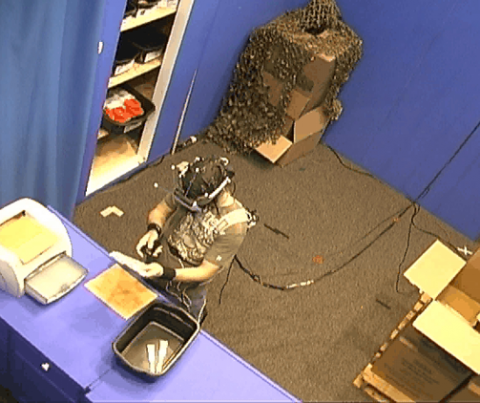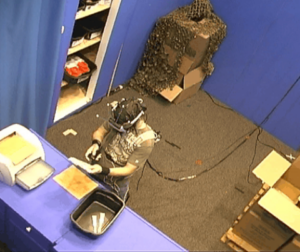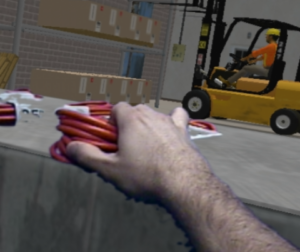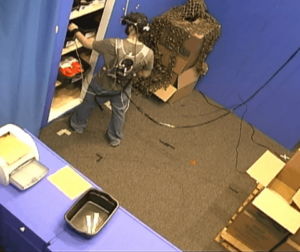
MR Warehouse
The Mixed Reality Warehouse project was a partnership with VRMC that involved creating an immersive scenario that explored at what point distractions become impediments to task success. This project was a Phase I commercialization project funded by the Air Force Office of Scientific Research, looking to see if a system could be developed that would capture that point of task failure due to distractions. This was a proof of concept for the technical feasibility of the MR environment to capture and analyze requested data in support of creating an assessment tool for soldiers suffering from TBI. The tasking in the scenario was three-fold:
Primary Task:
Sort incoming goods into their correct bins; how well do the subjects complete this task?
Secondary Task:
Fill incoming orders from the printer; do these get filled? How easily?
Tertiary Task:
Notify manager when trucks arrive; do these events get noticed?
Distractions during the ten-minute scenario ranged from forklifts loading and unloading boxes, to construction behind the depot, to fans and other ambient audio. The participants were monitored during the scenario by behavioral observations with video capture and live observation, as well as physiological monitoring through the use of EEG and GSR sensors.
The results show that EEG measures of Engagement and Workload are good indicators of how the tasks affected the healthy participants in the phase I activity. A person with head trauma would not be able to complete these vocational tasks as scripted. However, the EEG measures allow for a means to modify the environment to support successful use of the mixed reality scenario as a rehabilitation tool. More specifically, EEG data can be analyzed individually and in aggregate to obtain an understanding of cognitive aspects of the task that may pose challenges to head injured patients. The EEG measures also show how distracters within the scenario affected performance from a cognitive processing perspective. This information is critical for virtual rehabilitation therapy protocols.
Project date:
MCL 2008



